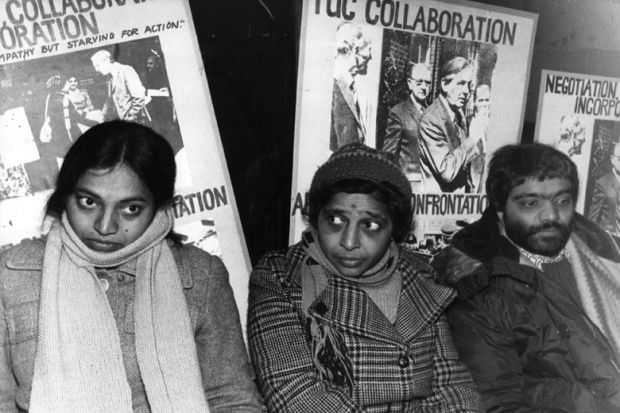There’s nothing better than sitting with a group of women and a cuppa while they tell their stories, and those of their mothers and their mothers’ mothers. For as long as I can remember, I’ve done this with my own mother and my aunties, and with neighbours and friends. For me, hearing the stories that women tell about their lives is a beautiful experience, and one that teaches you about life, about how to be a friend or a mother or a woman, or just how to be. I won’t claim this never happens when men talk about their lives, but in my experience, when women do it they tend to see the world as a whole and look to find where they fit in, whereas men think instead of the world as a place that they can shape.
Geographer Linda McDowell’s study, an “autobiography of the post-war period” when the UK became a multicultural society and “waged work the norm for most women”, is a collection of the stories that women tell other women about how to fit into the world. Her focus is women who have moved to Britain from overseas, and in most cases from a different culture, a different language and different ways of doing things. Perhaps what they learned is not how to fit in, but simply how to fit.
I was particularly struck by the story of Harshini, who came to the UK from the Punjab as a girl, and who tells her story of sewing seat covers in a Ford factory as a young mum in the 1960s. Her story is the kind that is seldom told at all – and even today it is rarely the women from her own community who get to tell it. This is a story about Ford, and about women’s lives and work, that the film Made in Dagenham missed. McDowell gives a platform to Harshini to tell her story in her own words, which is one of this book’s great strengths.
Migrant Women’s Voices does not focus solely on women who, like Harshini, work in the manufacturing industries. We also hear from Caro, a senior executive working for an investment bank in the City of London, who arrived from the US in the 1980s and who describes the sexism and macho culture of the industry, but who also recognises her own authority and how she uses it to get through.
While these stories are invariably interesting in themselves, McDowell offers additional context by situating them in the specific challenges that migrant women face. Many struggle to find childcare when families are thousands of miles away, and to negotiate the conflicting demands of work and family life. Many find it hard to see where they fit in the world as migrant women while their own children are growing into British identities. Although many dream of retirement “back home”, they realise that this would mean leaving children and families behind.
Although these stories are intensely personal, they also tell the story of British society. These are the women who, mostly anonymously, have cared for us in the NHS, cleaned our offices, and made the clothes we wear. They not only changed the lives of their families but also changed what Britain looks like and sounds like, what we eat, what we wear, what music we listen to, and what we laugh at. They are pioneers, and we stand on the shoulders of those giantesses.
Lisa Mckenzie is research fellow in the department of sociology, London School of Economics, and author of Getting By: Estates, Class and Culture in Austerity Britain (2014).
Migrant Women’s Voices: Talking About Life and Work in the UK Since 1945
By Linda McDowell
Bloomsbury, 280pp, £70.00 and £22.99
ISBN 9781474224475, 4482 and 4512 (e-book)
Published 25 February 2016
Register to continue
Why register?
- Registration is free and only takes a moment
- Once registered, you can read 3 articles a month
- Sign up for our newsletter
Subscribe
Or subscribe for unlimited access to:
- Unlimited access to news, views, insights & reviews
- Digital editions
- Digital access to THE’s university and college rankings analysis
Already registered or a current subscriber? Login




